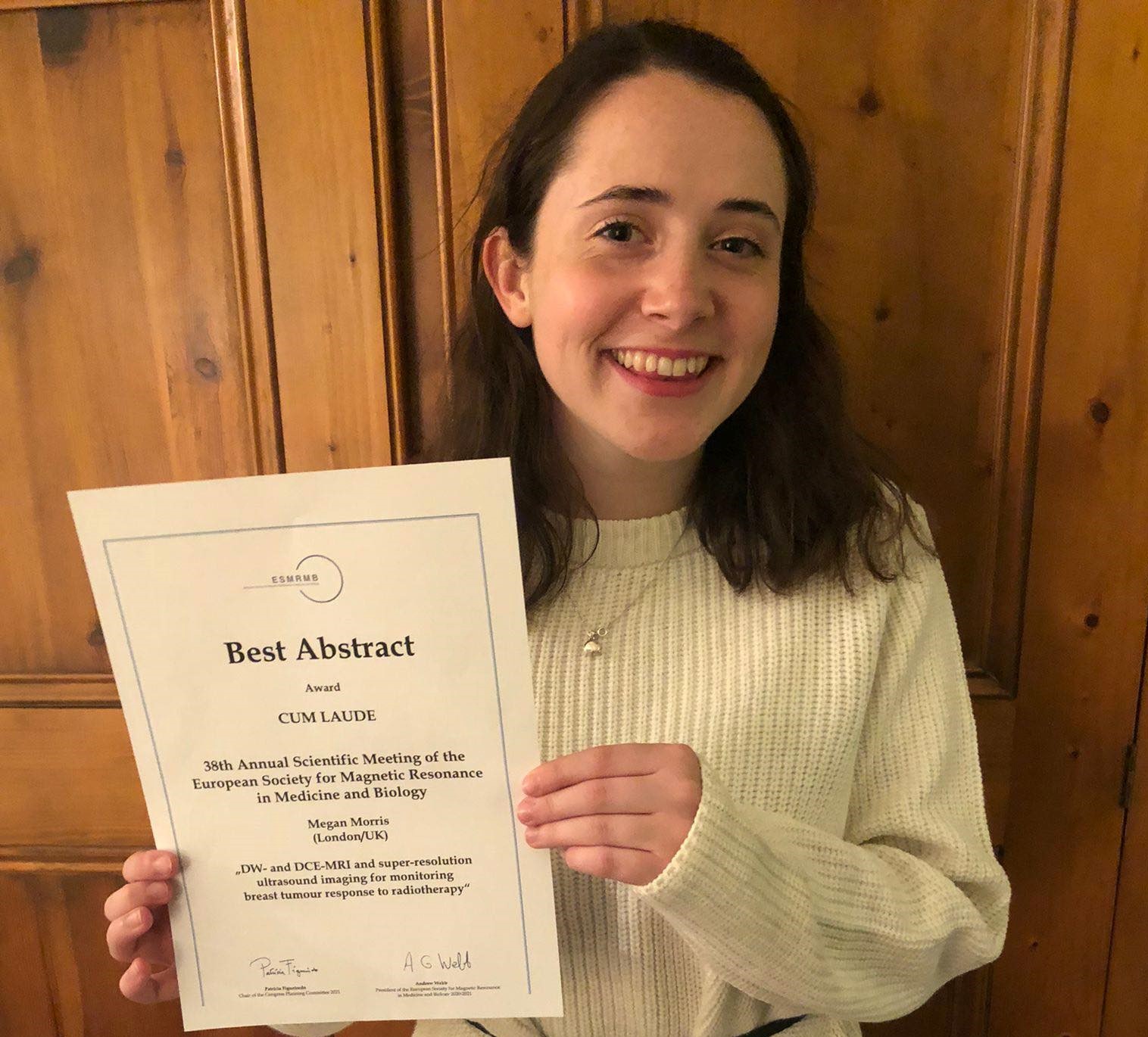

We are delighted to start a new webinar series to highlight the work of our brilliant PhD students.
This new series of webinars, called Future Leaders in Convergence Science, brought to you by the Cancer Research UK Convergence Science Centre at Imperial College London and The Institute of Cancer Research, will give a platform to our PhD students to present their research, and share their experience of navigating between disciplines and finding their scientific identity as convergence researchers.
Please join us online on Thursday 19th January, from 15.00-16.00, for a talk from:
 Megan Morris – Division of Radiotherapy and Imaging, The Institute of Cancer Research & Department of Bioengineering, Imperial College London.
Megan Morris – Division of Radiotherapy and Imaging, The Institute of Cancer Research & Department of Bioengineering, Imperial College London.
Introduced by Dr Navita Somaiah.
“Imaging the breast tumour microenvironment following radiotherapy using novel super-resolution ultrasound and functional MRI”
Radiotherapy forms part of the curative treatment strategy in ~50% of all cancers. However, some tumours are radioresistant, leading to poor treatment outcomes. To improve patient stratification and thereby outcomes, the development of accurate, precise and non-invasive response and prognostic imaging biomarkers is essential. By obtaining biomarkers that spatially map the biology of the tumour and quantify response, earlier identification of response, resistance and relapse is possible. Dynamic contrast-enhanced (DCE-) and diffusion-weighted (DW-) MRI provide non-invasive mapping of the properties of tumour vasculature and cellularity, respectively. Tumours are associated with heterogeneous perfusion and hyperpermeability and are highly cellular. Although MRI provides excellent anatomical coverage, it still suffers from relatively low spatial resolution (order of millimetres), therefore there is a lack of validation of MRI-derived biomarkers, which only act as surrogate measures of the underlying biology that occurs at much smaller length-scales. Super-resolution ultrasound is a new imaging technique which overcomes the diffraction-limited resolution of conventional ultrasound imaging and produces super-resolution images. Microbubbles are intravenously administered, which enhance the ultrasound signals within blood vessels. The paths of the individual microbubbles are tracked over time, by acquiring data at high temporal resolution. Super-resolution ultrasound provides non-invasive mapping of the structure and dynamics of the tumour microvascular system, which is usually chaotic, with much higher spatial resolutions than available using clinical MRI. The goal of this project is to combine super-resolution ultrasound with clinical DCE-MRI and DW-MRI to monitor radiotherapy response at multiple spatial (~20 microns to tens of centimetres) and temporal (sub-millisecond to tens of seconds) scales. The response will be measured by quantifying microvessel structure and dynamics and monitoring these measures during treatment to provide deeper understanding of vascular disruption and change following radiotherapy.
Megan Morris is a PhD student, funded by the CRUK convergence science centre. She is based in Dr Navita Somaiah’s and Dr Matthew Blackledge’s teams in the Division of Radiotherapy and Imaging within the Institute of Cancer Research, and Prof Mengxing Tang’s team in the Department of Bioengineering, Imperial College London. The project focusses on combining super-resolution ultrasound (SRUS) with quantitative modelling of contrast-enhanced and diffusion-weighted MRI to improve characterisation of radiotherapy-induced changes to the microvasculature of patient with advanced breast cancers. She hopes to use this information to improve response assessment and earlier identification of relapse following treatment.
Please note: This webinar is exclusively available to colleagues from the Institute of Cancer Research, the Royal Marsden, Imperial and Imperial College Healthcare. Do not forward to colleagues outside of these organisations.